How to make a playlist on YouTube: The step-by-step guide to increase engagement

Playlists are a powerful (but underrated) feature you can use to grow your YouTube channel. Yes, that’s right—it’s more than just tossing videos together. It’s a major part of your YouTube strategy.
When made strategically, playlists can help you leverage the YouTube algorithm to your advantage, influence your viewers’ choices and keep them coming back.
In this article, we’ll walk you through how to create and manage new playlists on your YouTube channel. We’ve also compiled a few best practices to make the most out of this tool.
What is a YouTube playlist?
A playlist on YouTube is a collection of videos typically curated based on themes. You can use playlists to categorize content and help viewers discover specific videos. Visitors can find them on the Playlists section of your channel page.
You can also use playlists to organize your channel’s homepage—like we did on Sprout’s YouTube channel:
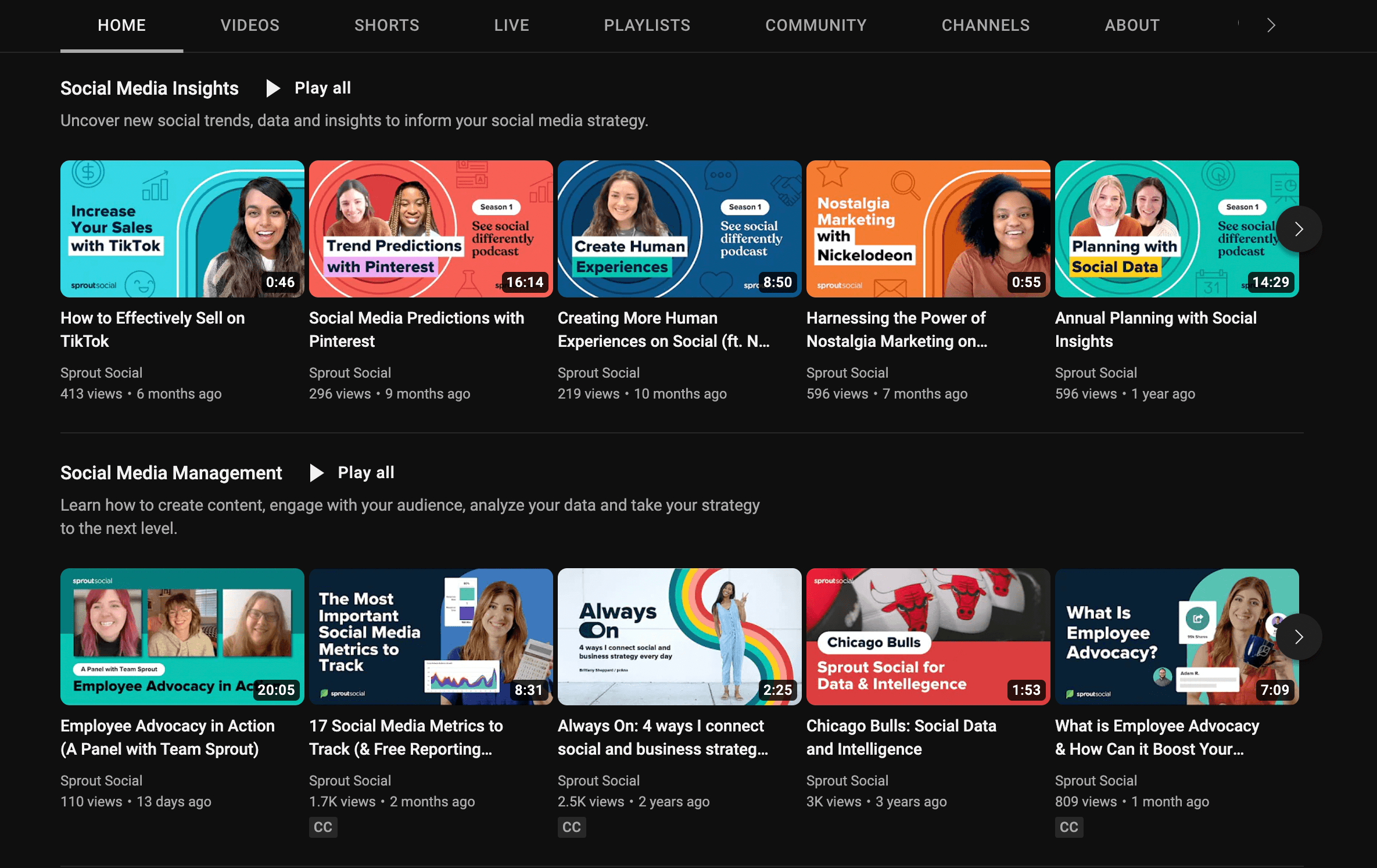
Playlists add a binge-worthy element to your channel. They go by the same rules as streaming platforms (like Netflix): as soon as one video ends, the next in the sequence starts playing.
Both viewers and channel owners can make YouTube playlists. Let’s look at why creating playlists is an important part of your brand’s YouTube strategy.
Why create playlists on YouTube
Improves YouTube SEO
Playlists often rank in YouTube’s search results. In fact, many search results bring in a separate section for ‘Related playlists.’
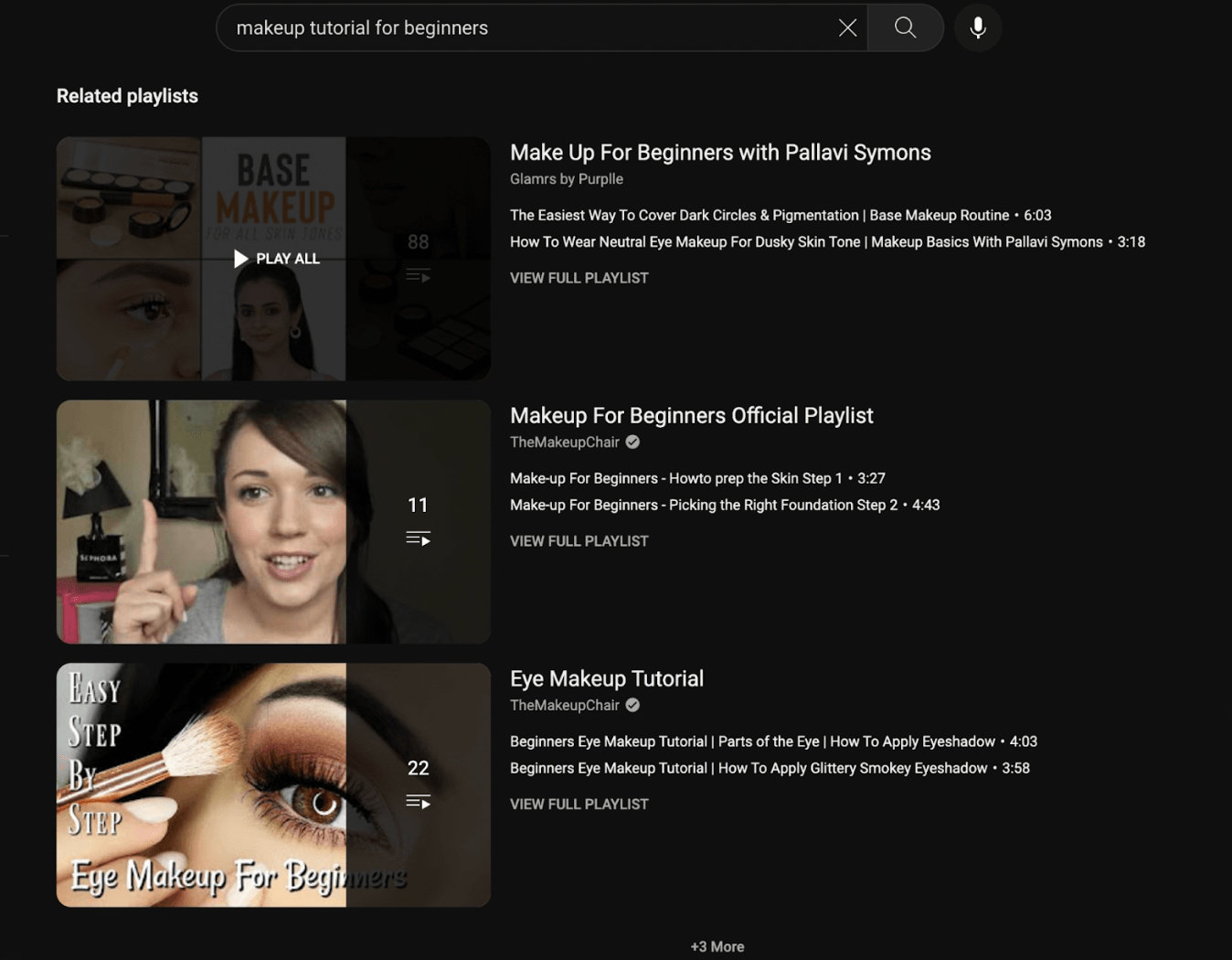
If your playlist description and title are optimized based on what people are searching for, it will rank higher and improve your chances of scoring more views. With a 5000 characters limit for descriptions, you can naturally integrate keywords that your audience is searching for.
To learn more about getting your videos at the top of search results, here’s our guide on YouTube SEO.
Improves discoverability
Videos included in a playlist have more chances to show up as suggested videos to viewers. YouTube prefers to show “topically related” videos in the Suggested Videos column. And they can come up as suggestions even when someone watches one of your videos outside of that playlist.
See how a playlist and video by the same channel show up in the Suggested section:
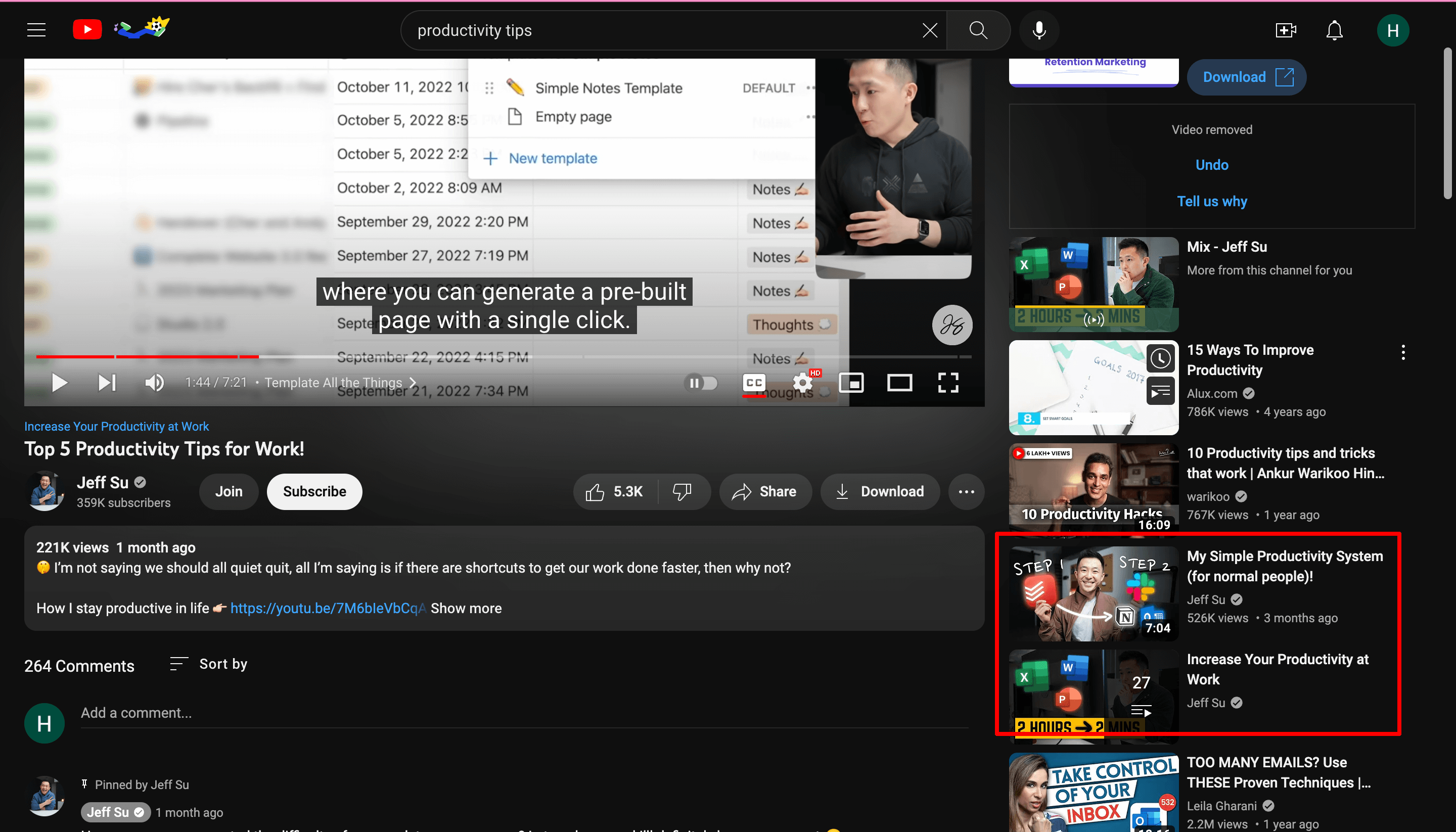
In short, by creating playlists, you’re increasing your chances of being discovered on YouTube.
Increases engagement
There are many ways you can use playlists to boost YouTube engagement rates.
For example, you can point visitors to the videos you want to specifically promote. Putting together your most popular videos under one playlist so that new viewers see your best content first is a good practice to follow.
You can organize videos by theme, audience type or content. This is especially helpful for viewers if you have a wide range of videos on your YouTube channel. They will find it easy to navigate and discover content that interests them the most. Here’s a great example from Andey Crowley’s channel where he curated separate playlists for guitar lessons based on learning levels:
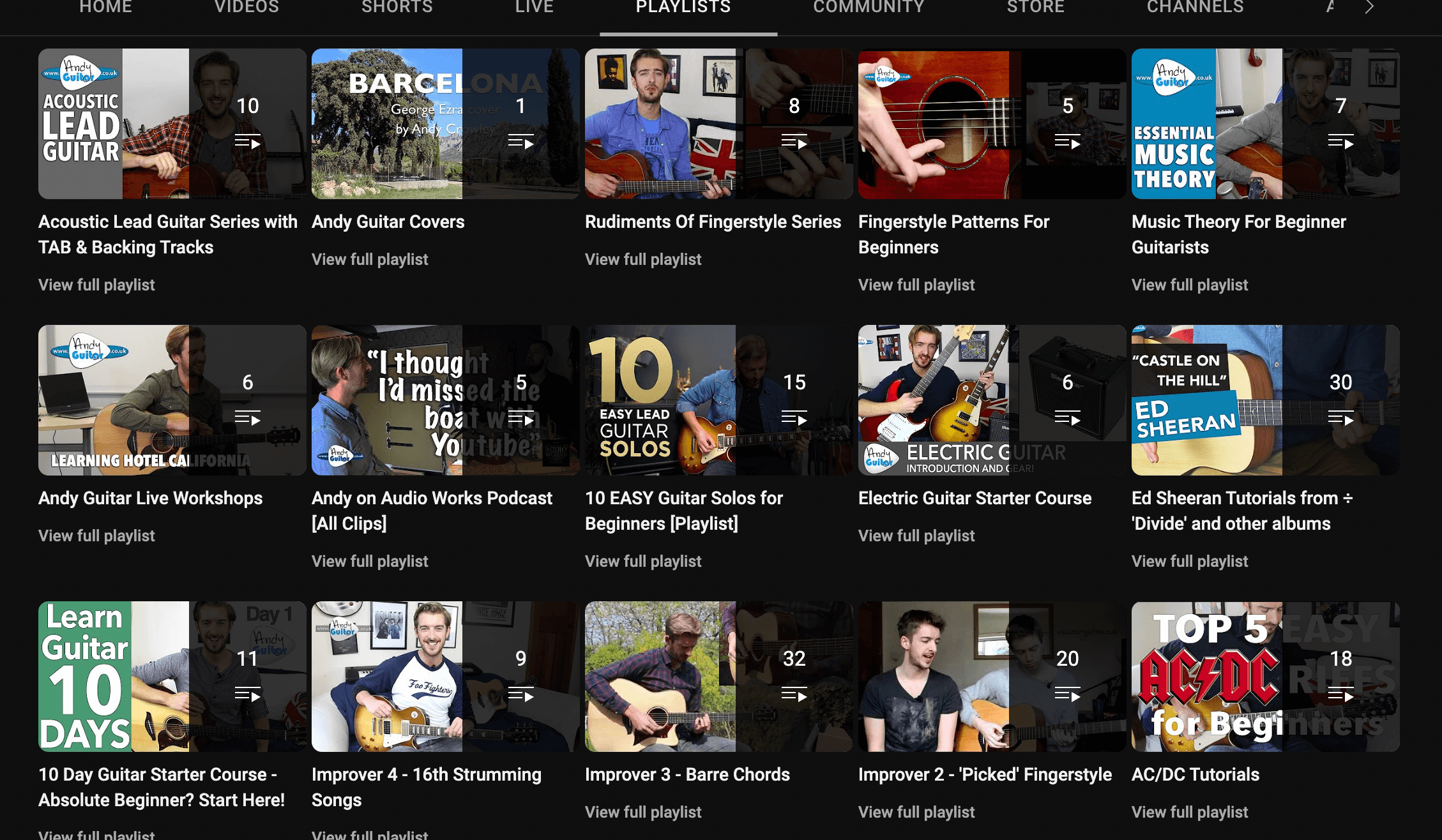
Longer watch times
Playlists minimize the chances that a viewer will move on to another channel after consuming one of your videos. The next video in the playlist automatically plays, thus increasing watch time. And longer watch time means higher search rankings.
How to create a new YouTube playlist
You can create, edit and manage playlists for your channel from YouTube Studio.
Step 1: From the left menu, select Playlists. Select NEW PLAYLIST on the top right-hand side.
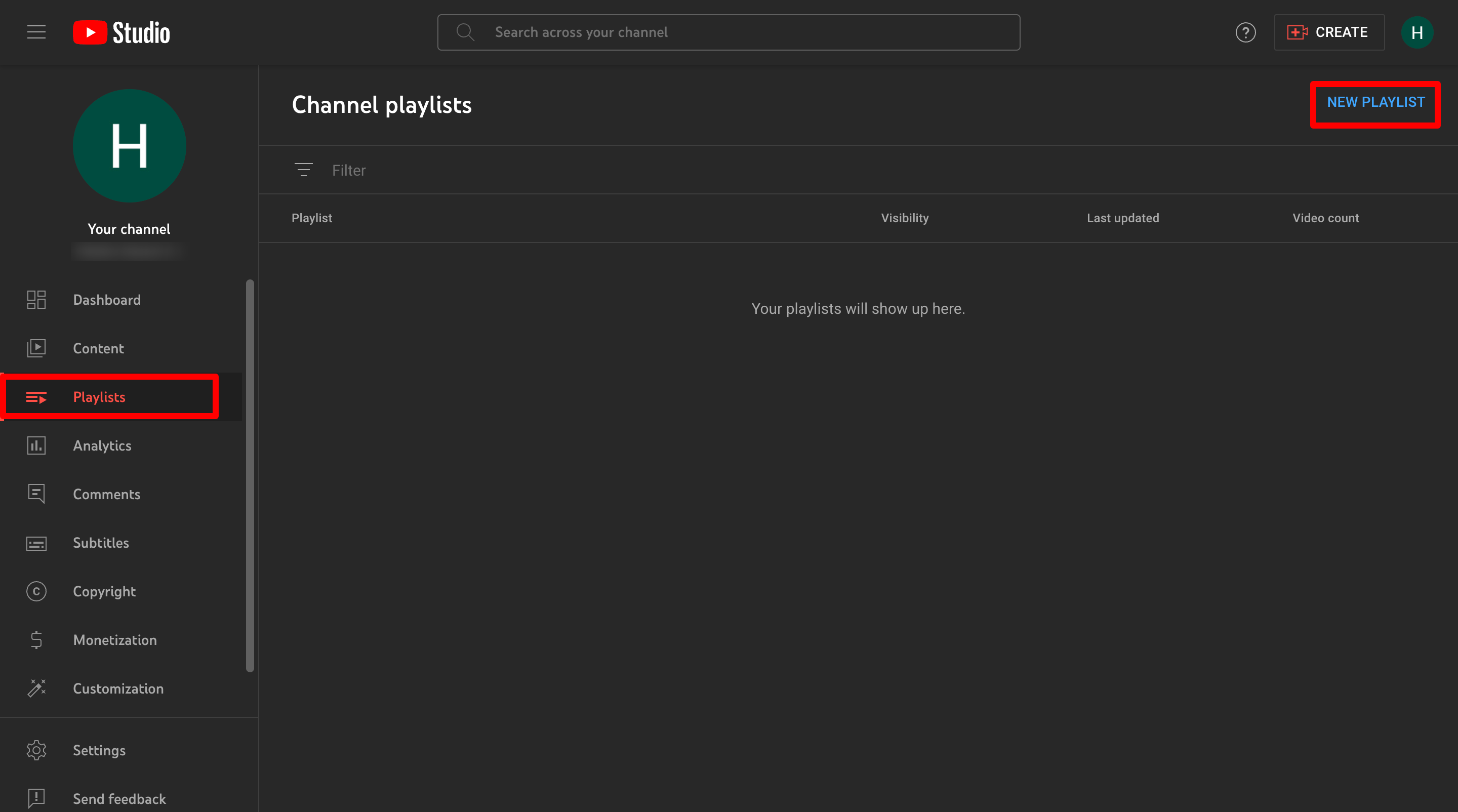
Step 2: Enter a title and description (optional). Select visibility settings (we suggest selecting Public so that your audience can view it) in the drop-down box and click CREATE. You can now view the playlist.
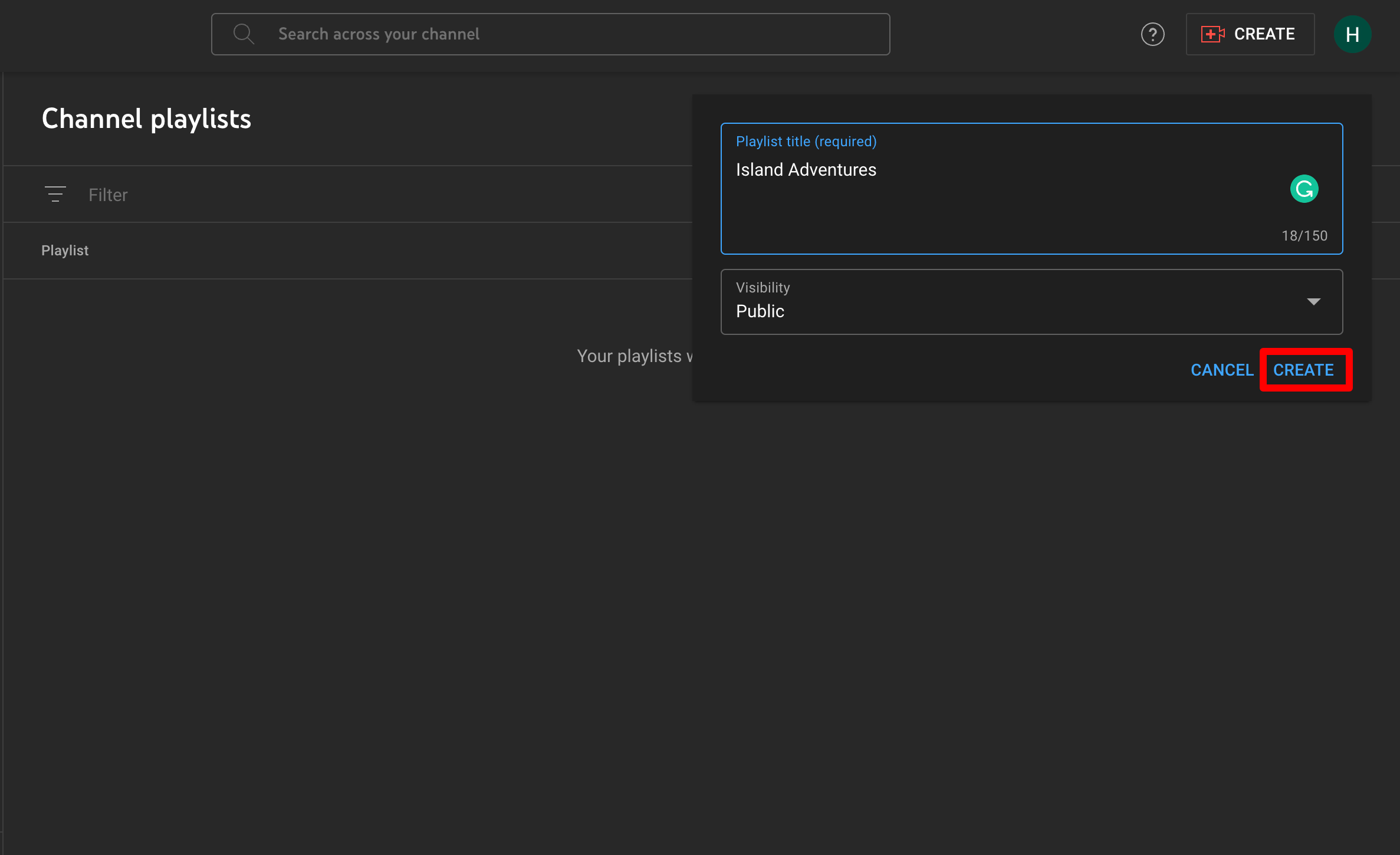
Step 3: To add videos, click the edit pencil next to the playlist you have created.
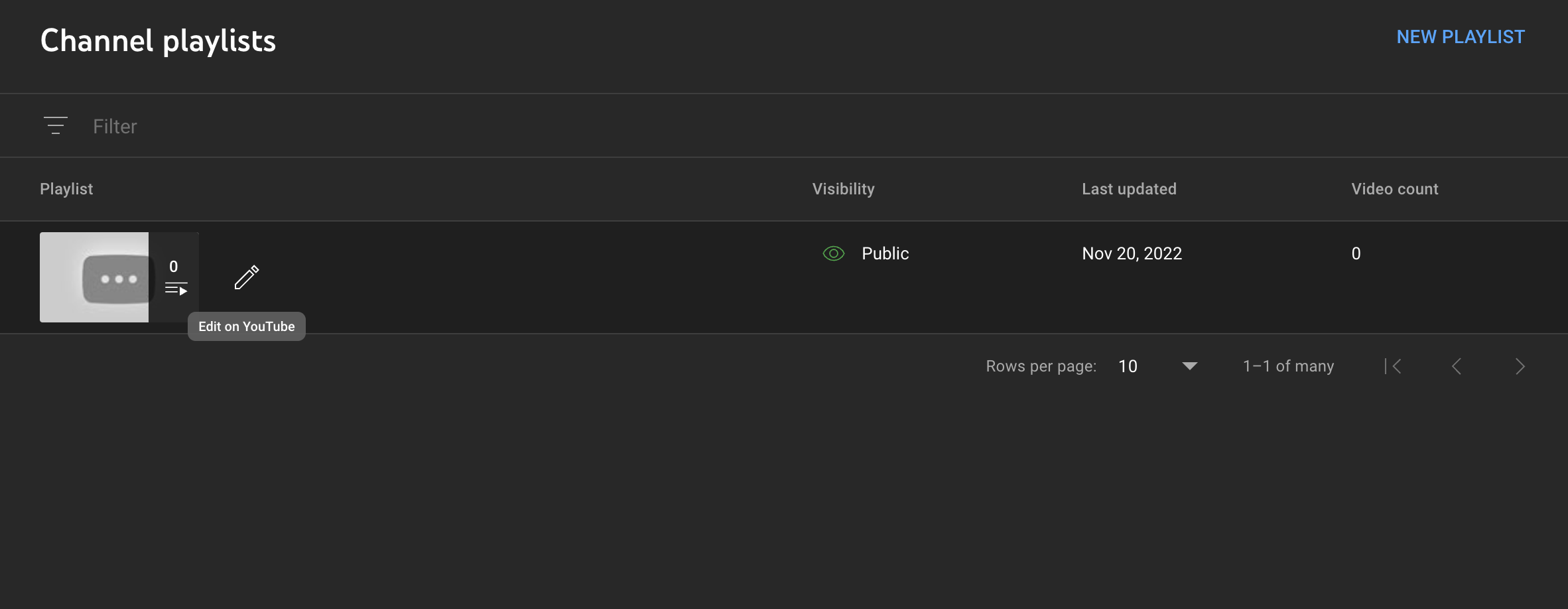
Step 4: Click the three dots menu and select Add videos.
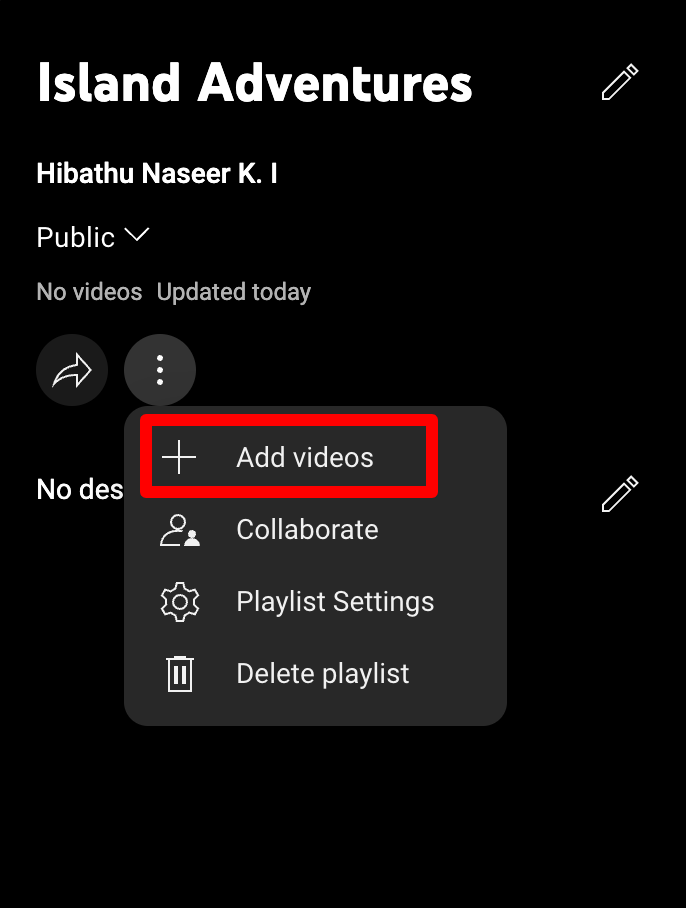
Step 5: Under Your YouTube videos, select the videos you want to add to the playlist. Click Add videos.
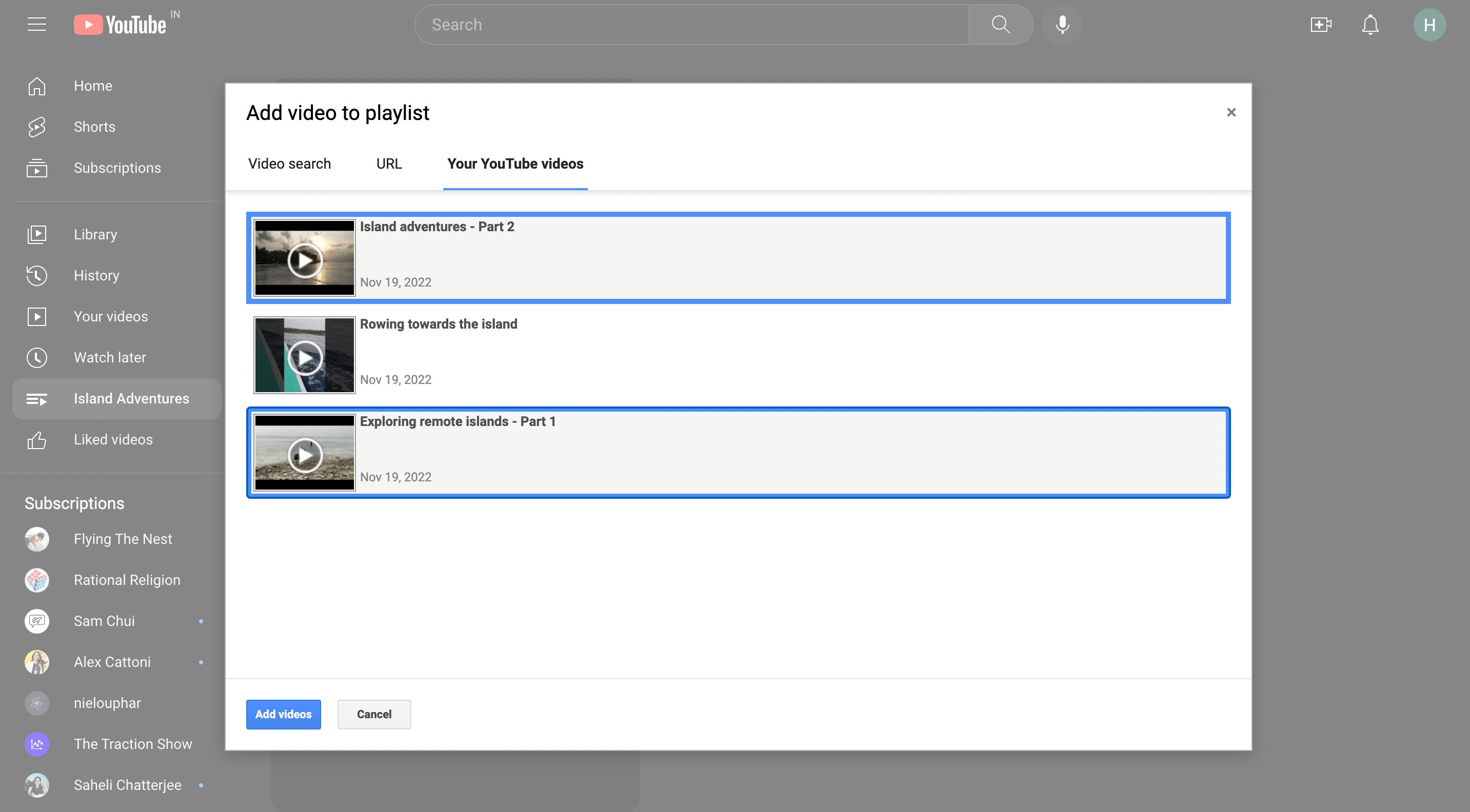
Step 6: To re-order videos in a playlist, drag and drop the video up or down.
Your curated YouTube playlist is ready! It can now be viewed by your audience under the playlist section of your channel.
You can also add a video to one or more playlists while posting on YouTube. After adding video elements, you get the option to choose an existing playlist or create a new one.
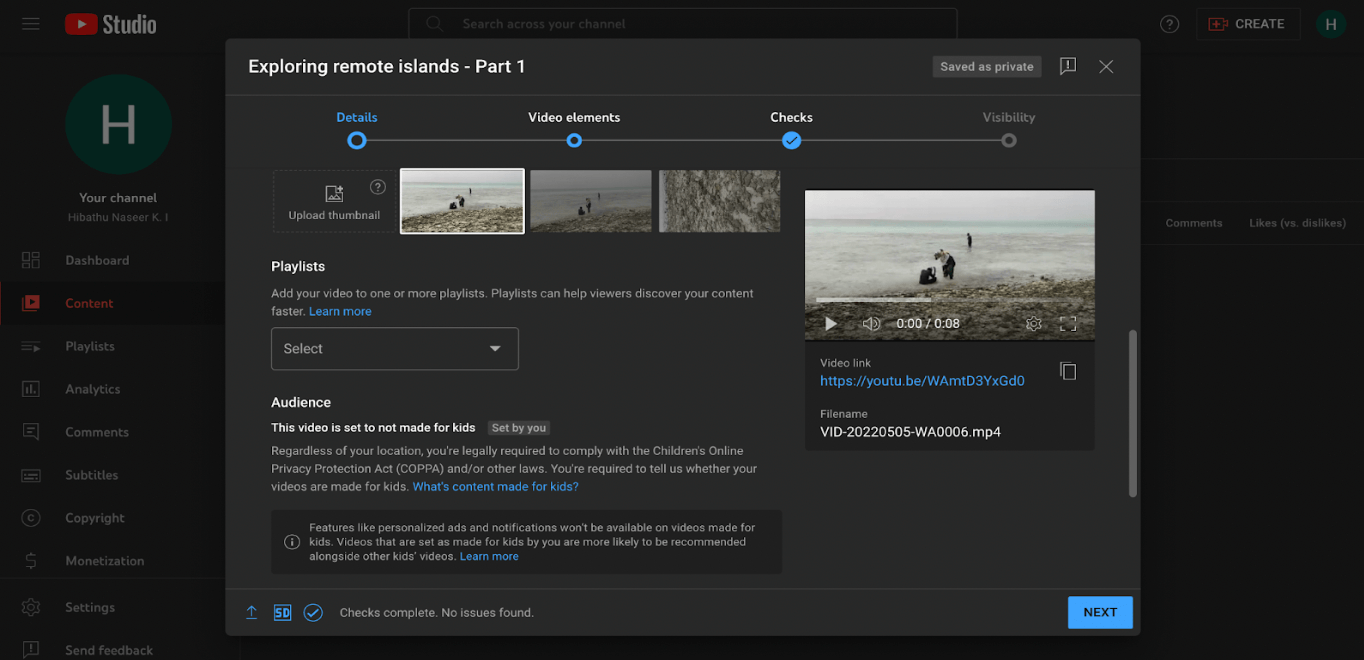
Best practices for YouTube playlists
Use a compelling title and description
When naming playlists, add a compelling title and description that are also optimized for search.
As mentioned earlier, adding a description is optional. But, we recommend making it a mandatory step for every playlist you create so that it shows up for certain searches. The trick is to focus on keywords that your viewers might be searching for and are related to the videos in your playlist.
The title and description should also accurately represent the content watchers will see in your playlist. Think about it: Would you watch a playlist if you weren’t sure what was in it? While YouTube lets you add up to 5000 characters to the description, it gets shortened in search results. Front load your description with details that will grab attention while concisely summarizing what’s within the playlist.
Place your best videos first
Organize playlists by placing your best video first. The idea is to get your top-performing content in front of more people and increase watch time. Increasing watch time will further improve channel engagement rates.
Find which videos bring in the newest subscribers or have the longest watch time through YouTube Creator Studio. For more powerful insights, use a tool like Sprout Social to discover what resonates with your audience and determine attributes that bring more engagement.
Of course, this isn’t applicable for every playlist you make on YouTube. You’ll want to decide contextually if the video fits in the playlist. Sometimes, you’ll have to consider the narrative you want to create—which brings us to the next tip.
Have a narrative
Videos in a playlist should have a flow to them. Based on what your channel is about, decide on appropriate themes and categories. Like episodes of a TV show, viewers should be eager to know what the next video in the playlist is about.
If you create vlogs, end each video with a loop and tell your viewers what’s coming up. Arrange your playlist based on this order and watch your views soar!
Does your brand have tutorial videos or videos on how your product is made? Make sure they’re arranged in the correct order so that viewers understand what comes next. Check out how Wix.com curated playlists with lessons on building an eCommerce business. Each playlist has a specific order for the videos to make it easy for beginners to learn:
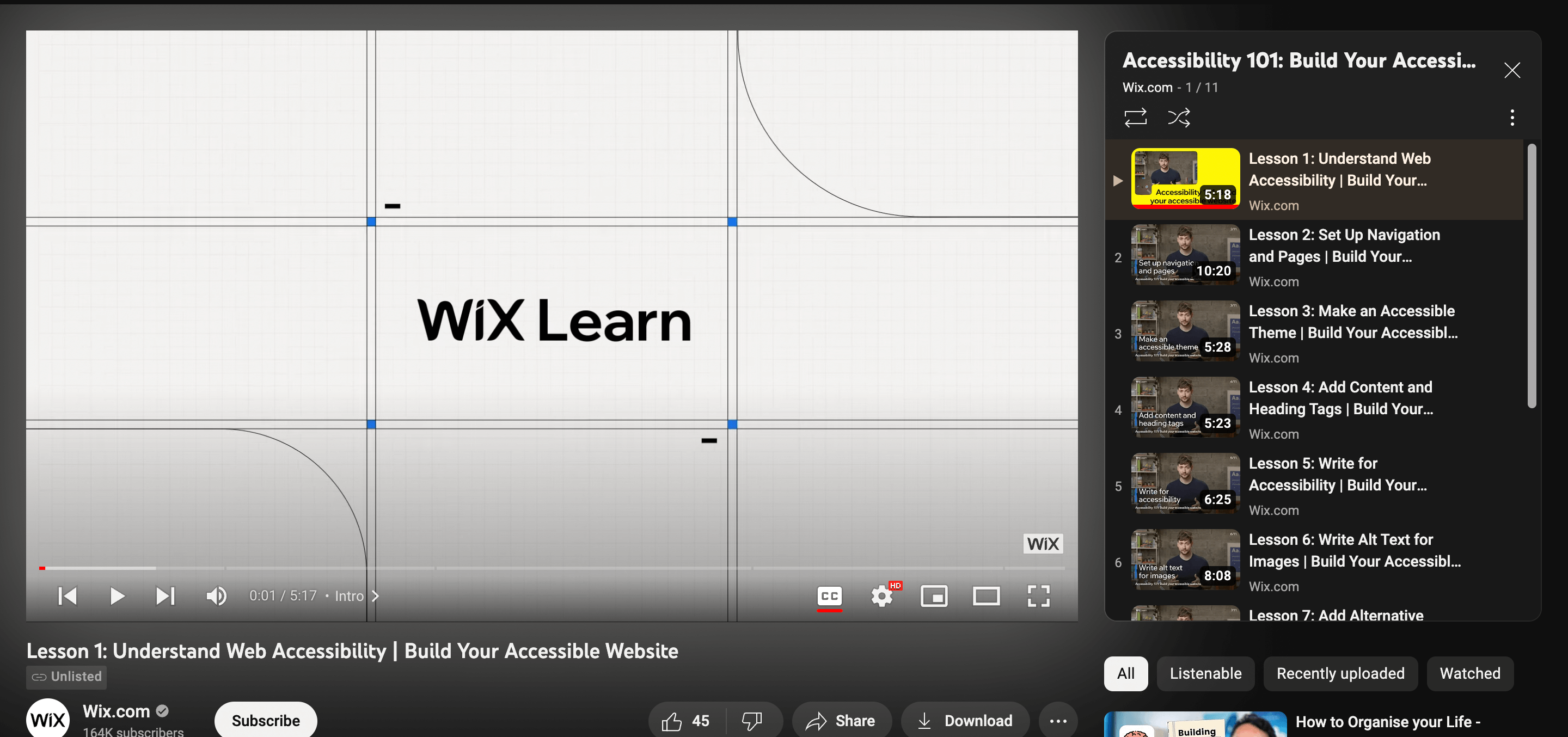
Create a special playlist for new visitors
Just like an About us page on a website, make a YouTube playlist containing videos that will let new visitors know what your channel is all about. For brands, you can compile different videos that tell your brand story—like how Duolingo has an ‘All About Duolingo’ playlist with videos on the story behind the company and their brand mission:
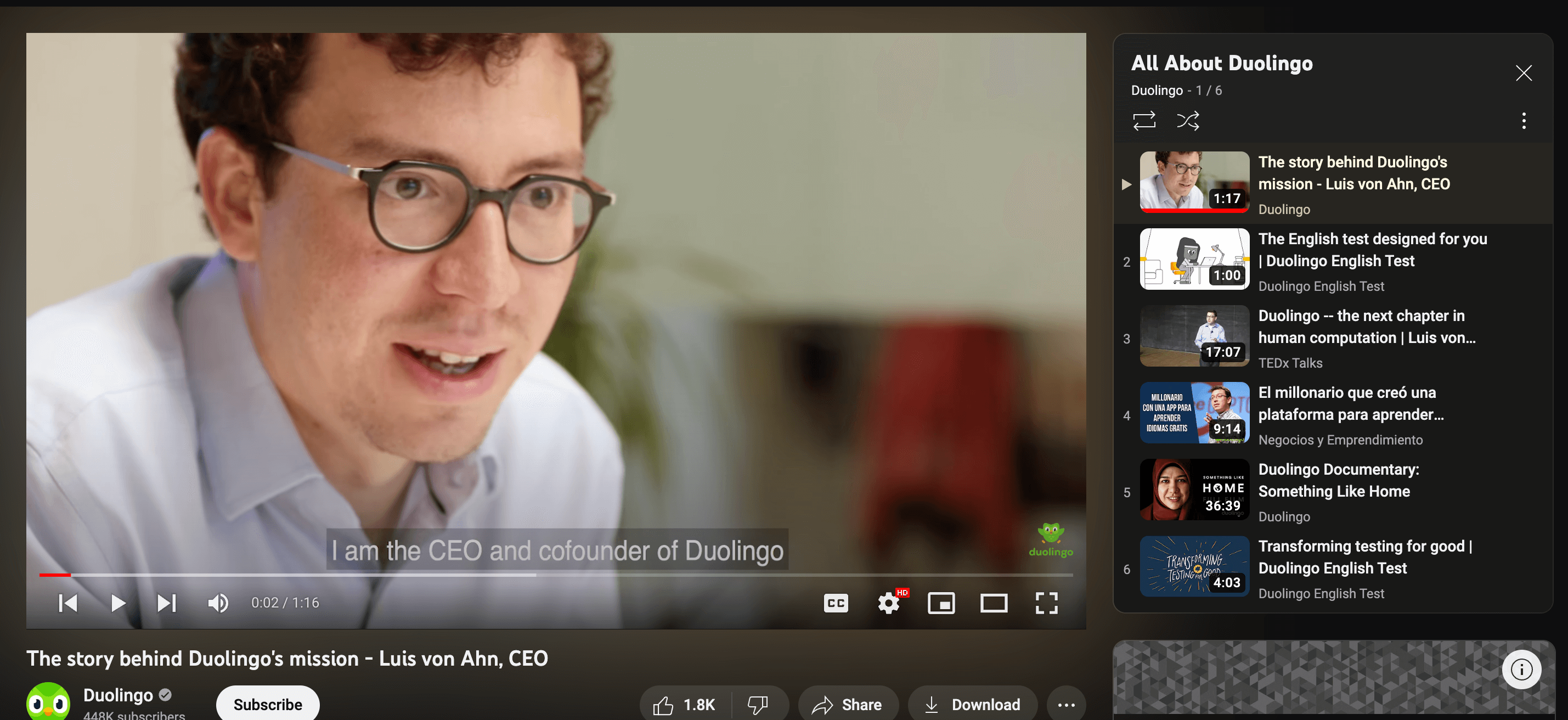
You can also introduce your brand with a ‘New Here’ playlist to highlight your best videos that will let new viewers know what kind of content your channel typically covers. Many YouTubers choose to do this, especially if they have uploaded many videos over time. Creator Ali Abdaal has a special playlist with 14 videos for new viewers, so they can quickly get acquainted with his content.
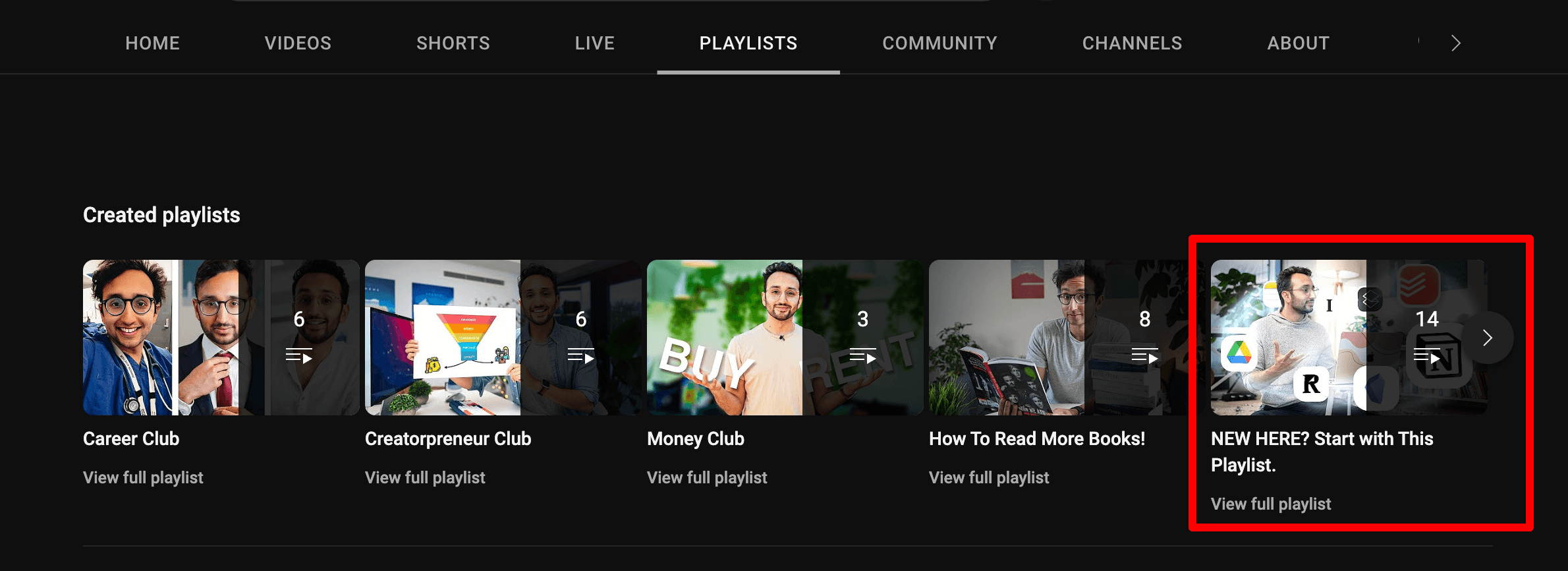
Set the best thumbnail
There isn’t an option to upload a separate thumbnail for playlists. The thumbnail from the first video will be set as the playlist’s thumbnail by default. But YouTube lets you choose a thumbnail from any video in that playlist.
You can easily modify this from YouTube studio. Go to the playlist you want to edit. Select the three dots menu from the video you’ve decided to use as the playlist thumbnail. From the drop-down, select Set as playlist thumbnail.
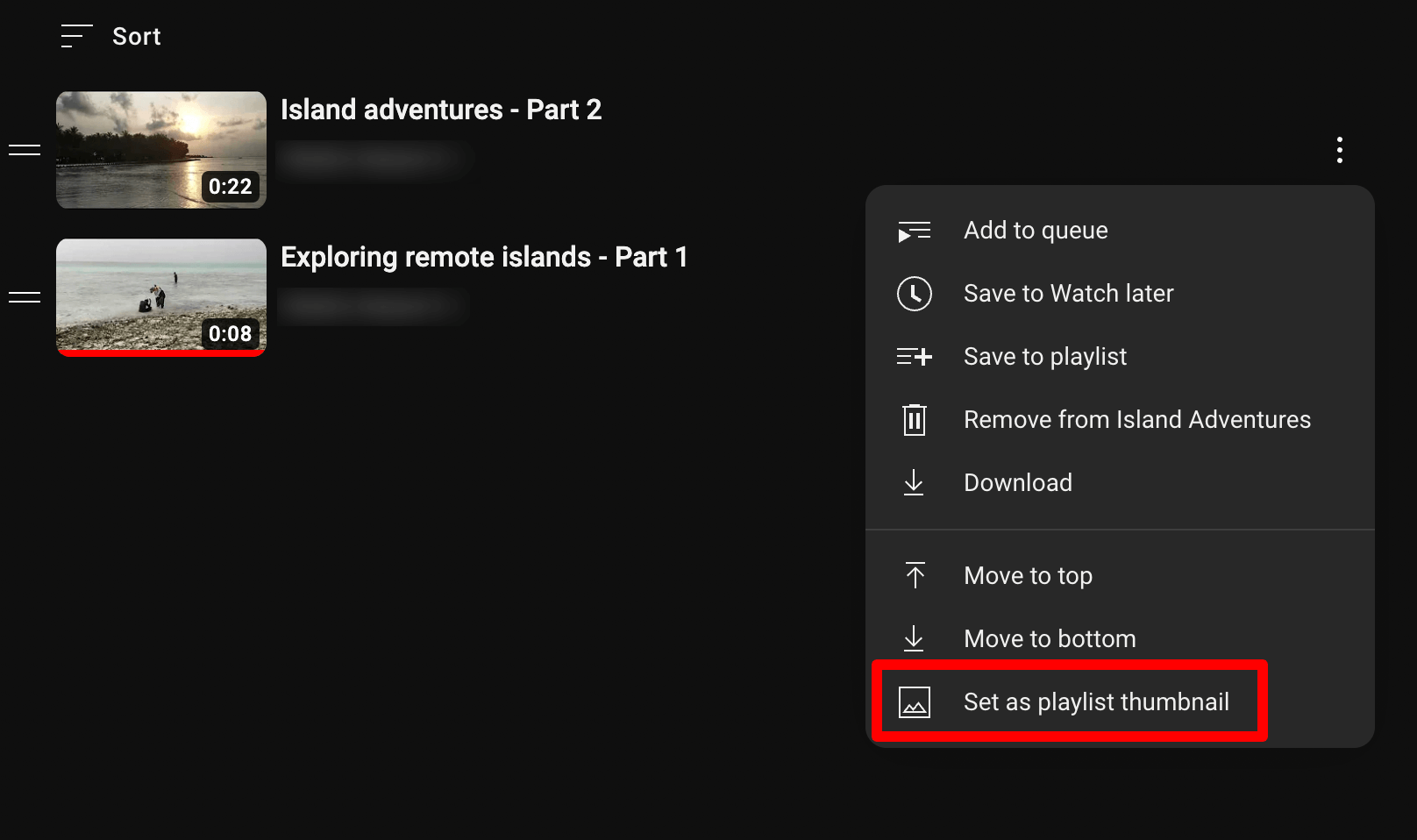
It’s best to choose a thumbnail that matches your playlist title. Just like for videos, they can entice your audience to click through when it shows up on the search results.
Don’t add too many videos
The point of creating playlists on YouTube is to make navigation easier for your audience. So, the last thing you want to do is overwhelm them with an enormous number of videos in playlists. We recommend going for 3 to 10 videos per playlist. If a theme or topic you choose has many videos, try splitting it into another playlist.
Make the most out of YouTube playlists
Creating playlists on YouTube is more than just grouping together related videos. They are tools in your video strategy to organize content and give your audience more ease in navigating through the channel.
It’s up to you to decide how to best curate playlists for your channel. Get insights about your audience to know their preference and create playlists accordingly.
For more insights on growing your brand presence on YouTube, check out our guide on YouTube marketing.
- Categories
Why social media shares matter in 2025 (+10 engagement tips)
Published on May 9, 2025 Reading time 9 minutes - Categories
Reddit trends: A marketer’s guide to untapped potential
Published on May 8, 2025 Reading time 10 minutes - Categories
Connect and convert with WhatsApp marketing software
Published on May 7, 2025 Reading time 8 minutes


Share